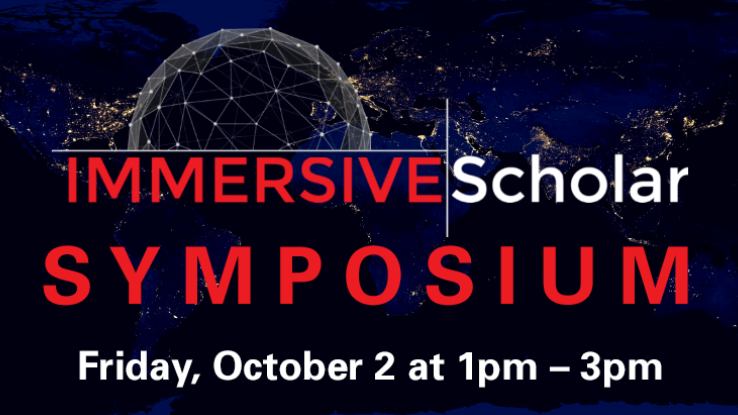
Creative residents talk data, surveillance, and privacy

How many hours a day do you spend online now? And how private do you think those hours are?
The Libraries hosts a virtual mini-symposium about surveillance architecture, the attention economy, and data privacy in online spaces. The symposium concludes an Immersive Scholar creative residency by Joelle Dietrick and Owen Mundy of Davidson College and Sneakaway Studio. By adapting their browser-based game “Tally Saves the Internet” into an experiential work, Dietrick and Mundy have focused on the roles that tracking bots play in our lives, which have been shifted abruptly online due to the COVID-19 pandemic. The residents have worked with the Libraries team to describe how human experience has been changed by online life and to propose responsible forms of response.
The mini-symposium takes place on Friday, Oct. 2 from 1:00 p.m.-3:00 p.m. The event is free and open to the public; you must pre-register to attend. The event will be held in Zoom and simultaneously broadcast on YouTube Live.
The mini-symposium panelists are:
- Joelle Dietrick, artist and Assistant Professor of Art and Digital Studies at Davidson College
- Owen Mundy, artist, designer, programmer, and Associate Professor of Practice in Digital Studies at Davidson College
- Nick Merrill, Director of Daylight Security Research Lab at UC Berkeley
- Lauren Klein, Associate Professor in the Departments of English and Quantitative Theory and Methods at Emory University, director of the Digital Humanities Lab, and co-author of Data Feminism
After the panel, Dietrick and Mundy’s visualization work will be unveiled with live gameplay and commentary from the creative residents and the Libraries support team.
The Immersive Scholar residency program is part of a Mellon Foundation-funded project, entitled “Visualizing Digital Scholarship in Libraries and Learning Spaces,” which continues the Libraries’ pioneering work with large-scale, research visualization technologies and supports the advancement of tools and techniques for developing and sharing such visual content for research.